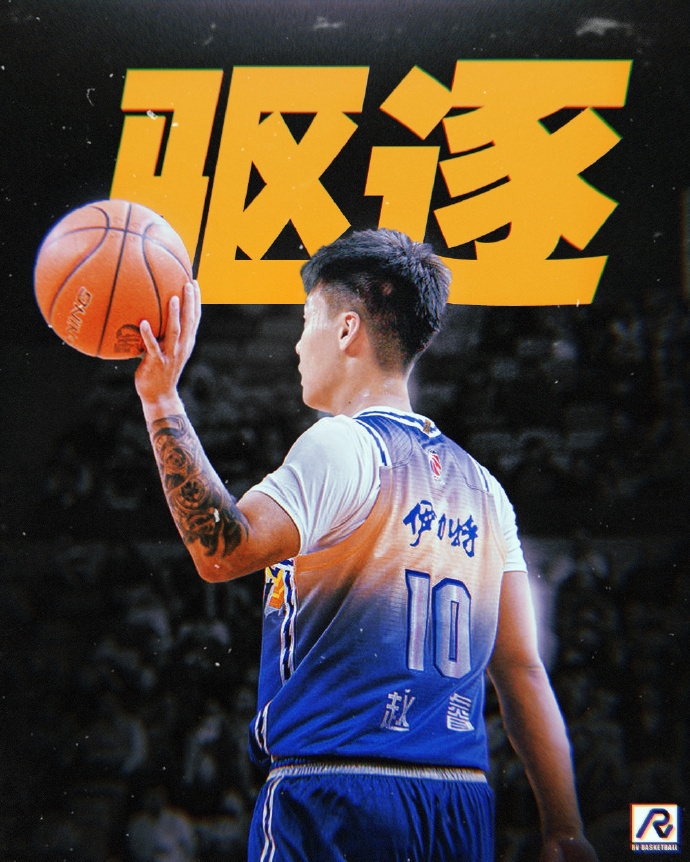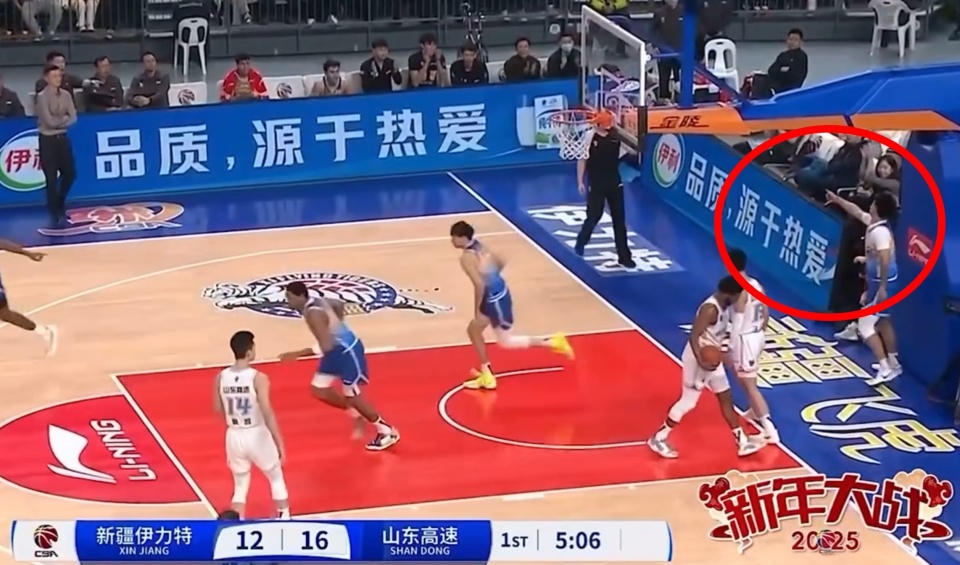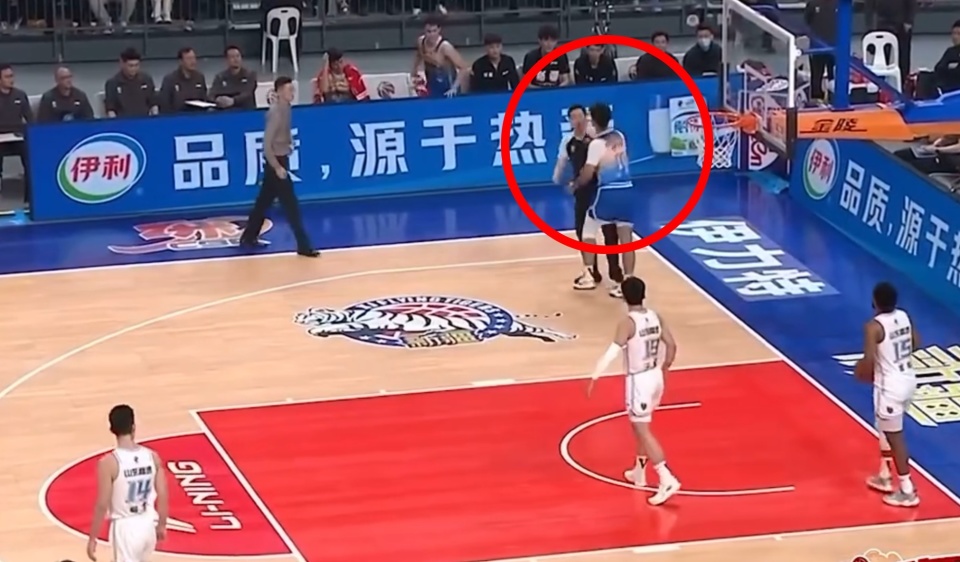In the CBA New Year's battle, the focus match between Xinjiang and Shandong sparked an "unexpected incident" amidst intense competition. During the game, Zhao Rui engaged in a fierce conflict with the referee over a controversial call. Zhao Rui collided with a Shandong defender during a break-through attempt. Believing he had been fouled without receiving support from the whistle, an emotionally charged Zhao Rui immediately confronted the referee with words to express his dissatisfaction. The referee promptly issued a technical foul. However, Zhao Rui did not let it rest there; his emotions escalated, leading to a more intense physical confrontation with the referee. He actively initiated physical contact with the referee, which resulted in his immediate ejection from the game. (GIF animation at the end of the article)

Through slow-motion replay, it was shown that the Shandong defender had no obvious violations in upper body defense but made a last-second leg-out move that caused Zhao Rui to lose balance and fall. This clear "leg-out" action should have been penalized, but the referee chose to overlook it, clearly igniting Zhao Rui's anger. From a professional standpoint, this was indeed a missed call, and Zhao Rui's emotional outburst was not without reason. Nonetheless, Zhao Rui's collision with the referee clearly exceeded the bounds of what is allowed by the rules, raising questions for discussion. In basketball games, referees are the guardians of order on the court, and any physical contact with them undermines the fairness and seriousness of the game. As a national-level player, Zhao Rui carries the hopes of the Xinjiang team and the responsibility of being a role model. While his actions reflect strong protest against unfair calls, they also pose risks to his professional integrity and career.

Zhao Rui's ejection not only sparked widespread discussion among fans and media post-game but also led to harsh criticism. Some supported Zhao Rui's "toughness," believing that frequent misjudgments and missed calls by CBA referees in recent years have been too common, with comments like "Zhao Rui is just voicing concerns for the players." Other fans expressed dissatisfaction, believing that as a professional player, Zhao Rui should be more rational and not let emotions dictate behavior, with remarks such as "Do you want to get paid for lying down? Fans pay to watch you play." This biting criticism reflects the high expectations fans have for the quality of the CBA league and their demands for players' professionalism. In recent years, the refereeing standards in the CBA have been a focal point for fans and media alike. Frequent obvious missed and incorrect calls have had some impact on the fairness of the games. As a professional league, the CBA urgently needs to improve its refereeing standards, both in terms of technical judgments and emotional management, requiring higher levels of professional competence to gain the trust of fans and players. However, this does not mean that players can overstep the rules and directly confront referees. Emotional control is also part of the game for professional players.

The discussion sparked by Zhao Rui's incident is actually a double questioning of the professional conduct of CBA referees and players. Players and referees should find a balance in jointly maintaining the fairness of the game, reducing missed and incorrect calls while avoiding emotional reactions from players that affect the normal course of the game. Only through mutual respect between referees and players can the overall level of the league continue to improve. The subsequent handling of this incident is worth watching, as Zhao Rui may face harsher additional penalties for pushing the referee, and the CBA league management also needs to reflect on and improve the training and selection mechanisms for referees to reduce similar controversies. For Zhao Rui himself, this incident is both a lesson in his career and an opportunity for self-adjustment. What fans need is a combination of skill and passion, not emotional失控 and rule conflicts.
